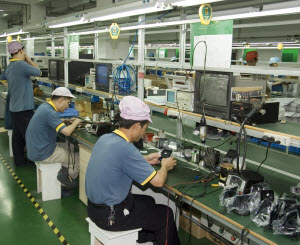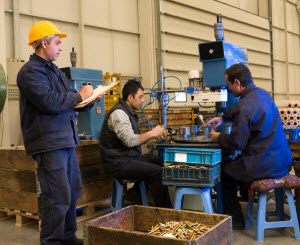Once you’ve entered into a working relationship with a Chinese factory, moving your production to another supplier can be difficult and costly. Ideally, such action should be kept as a last resort after all other options have been exhausted.
However, there are certain situations and behaviors that should cause any importer to consider ceasing production at a current supplier. So how can you know when the time is right for changing supplier? Below we’ve listed just 5 of the more serious red flags.
1. Lack of Social Responsibility
If your supplier is unable to pass a basic social compliance audit, this alone may not be reason enough to consider removing them from your supply chain. Truthfully, social compliance frameworks that go above and beyond local Chinese law can sometimes be very difficult for even well-run factories to satisfy 100%. However, if your supplier is found to have egregious violations of basic local law such as employing child or forced labor, it is recommended that you immediately and definitively cut ties with them.

Besides the obvious humanitarian concerns, the nature of such labor nearly guarantees that your products will not be produced to your quality standards. Furthermore, your brand could sustain significant reputational damage if it were to become known that your products were manufactured under these conditions.
2. Hostility towards QC Inspections
When suppliers refuse to allow their goods or facilities to be inspected by either your in-house or 3rd party quality control team, you may want to consider changing suppliers. This should immediately signal that the factory is either not properly equipped to produce your products, or that they are not confident in their products’ quality.

Worse still, they may be hiding some kind of legal violation such as described in #1 above. A legitimate supplier that is interested in gaining and maintaining your business will cooperate with you to ensure that you receive products that live up to your quality expectations.
3. Sudden or Frequent Changes in Payment Method
If your supplier either suddenly requires you to make payments via different method or to a different account, be wary of such transactions. As in any business relationship, it is advisable that you maintain records of all transactions.

Ideally these records should consistently show that your orders match up with each payment you make directly to the supplier’s corporate bank account. Deviations from this, such as making payments in cash without receipt or wiring money to your supplier’s personal account, may make it difficult later to prove that payments were actually made.

4. Consistent Critical Defects
Defects are often classified into 3 categories: minor, major, and critical. Critical defects are, not surprisingly, the most serious as they represent any issue with the product that could potentially harm an end user. If your supplier consistently releases shipments that contain critical defects, even after you have communicated the importance of eliminating such issues, you may consider removing them from your supply chain. A critical defect is behind every product recall, and such recalls cause not only huge monetary costs but also serious reputational damage.
[sidebar name="case studies"]
5. Unethical Business Practices
Unethical business practices are another just cause for changing suppliers. If you have any reason to believe that your supplier’s management level staff are engaged in unethical business practices, this should also be considered a serious red flag. Such practices can take many forms, but most often they center on giving or receiving bribes. To some extent this behavior is ingrained in Chinese culture, and is often described using the blanket term “guanxi” or relationships.
Your supplier may accept kickbacks from suppliers from continuing to buy their components even if they are of sub-par quality or overpriced. Similarly, your supplier may offer bribes to social compliance auditors or quality control inspectors to ensure that they do not report any major issues.






